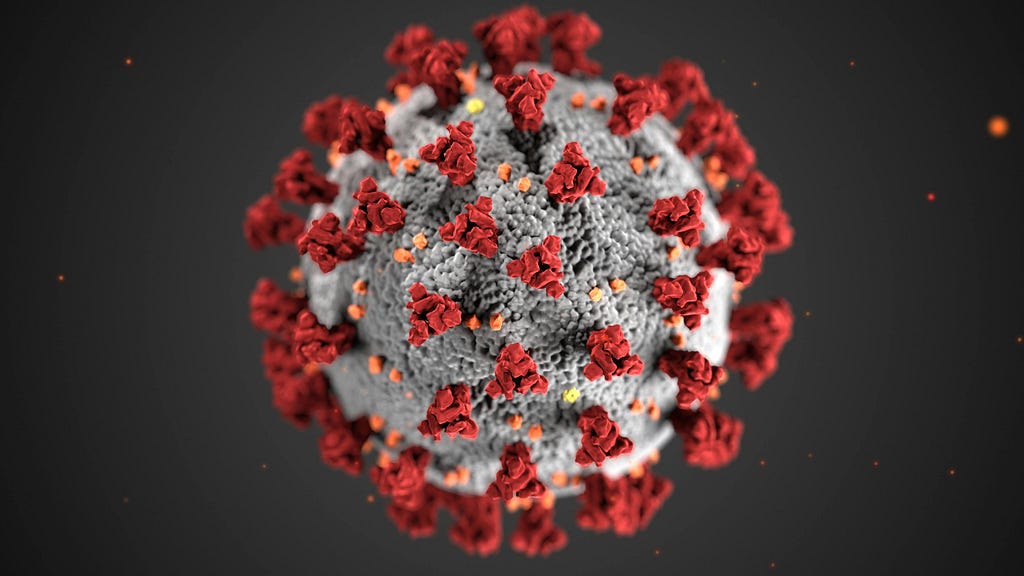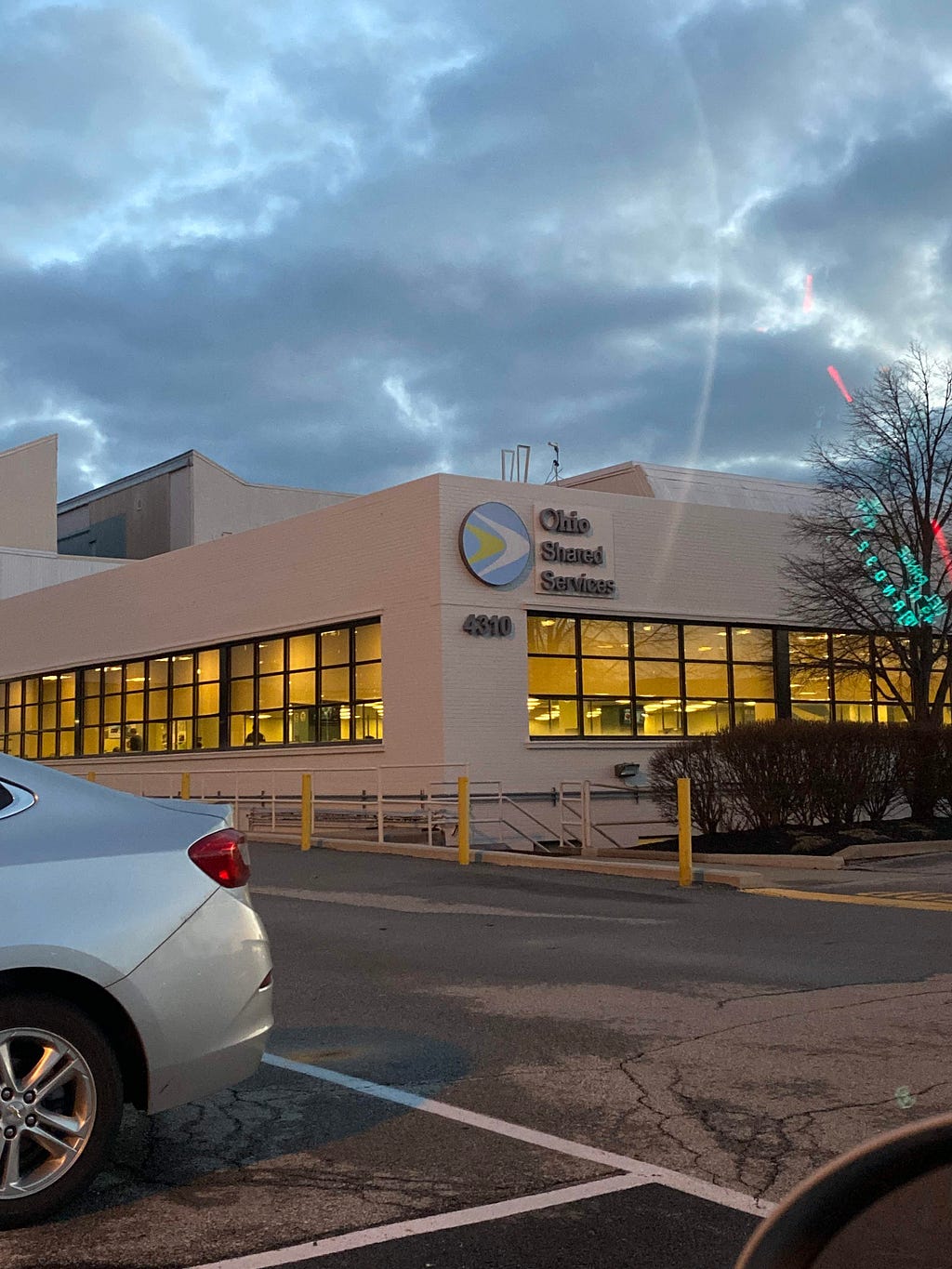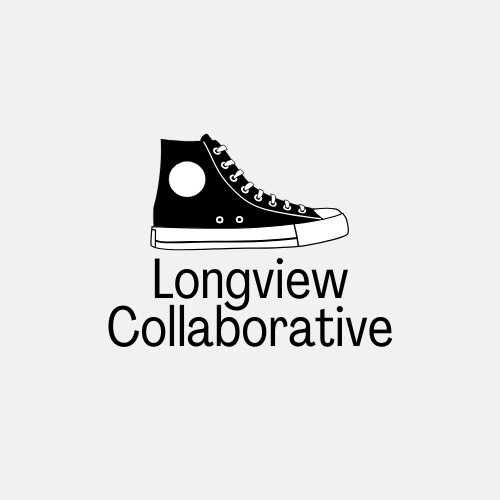
“They’re cancelling the Arnold!”
The Arnold Fitness Expo, held each year at the Greater Columbus Convention Center in Ohio’s capital city draws thousands of spectators, exhibitors, vendors, and athletes. Our office building is a few blocks from the convention center and on Arnold days, the chatter was usually about traffic or difficulties getting in and out of work during the multi-day event.
But on March 3rd, in a joint press conference with Ohio Governor Mike DeWine and Columbus Mayor Andy Ginther, they announced that while the athletic events would be allowed to continue as planned, spectators would not be allowed. National Public Radio (NPR) featured stories from people who supported and those who disagreed with the decision. It would be a big hit for the city financially. The Arnold pumps more than $50 million into the local economy each year.

I worked for a public health agency, so COVID-19 was certainly on our radar. But my day-to-day work had little to do with infectious diseases so I wasn’t doing COVID related work (yet). Much of the documentation still referred to it as the 2019 Novel Coronavirus. I was getting most of my COVID-19 information from NPR on my daily commute to and from work. My memory is imperfect, but I recall stories of people on lockdown in China. I remember one person talking about difficulties getting food and other resources. It seemed so far away. So impossible. It was January of 2020 and I was busy with work and dealing with the post-Christmas blues.
It’s Coming
Throughout January, more news. More stories about 2019-nCoV and on January 10th, China reported their first death. Wuhan was placed on lockdown on January 23. 11 million people were now confined to their homes. More bad news would follow. The first case outside of China, suspected human-to-human transmission, travel advisories, the first US case, and quarantines for those potentially exposed to the virus.
On the final day of January, 2019-nCoV was declared a public health emergency in the United States of America by the Department of Health and Human Services.
In February, the first tests were approved and deployed, but they were plagued with inconsistent and unreliable results. We also learned of a terrifying new reality; asymptomatic spread. The virus was given its now ubiquitous moniker on February 11 by the World Health Organization (WHO). COVID-19 would be forever ingrained in the zeitgeist. By the close of February, Italy had become the second global hotspot for COVID-19 and on February 25, Dr. Nancy Messionnier, COVID-19 incident manager for the CDC, announced U.S. mitigation efforts, telling us “disruption to everyday life may be severe.”
Earlier in February, I facilitated a workshop for participants of my leadership development program. The group consisted of 15 people, some of the best and brightest the agency had to offer. This was a particularly good year for the program and I felt honored that I was working with some of the best minds in public health. As we gathered for that workshop in my small training room in the basement of our building, I saw exhaustion and defeat on all their faces. At the time, I was not doing work related to the outbreak and I was still relying primarily on news reports. COVID-19 had not come home for me yet. It still seemed far away. I knew most of this group had been working on 2019-nCoV.
“How is everyone doing?”
That question turned into a two-hour discussion. They were not doing well. We never touched on the planned topic for the day. Instead we talked, we shared fears, we worried, and we tried to plan.
On February 29, the CDC, alongside the Washington Department of Public Health, announced the “…first death in an individual with laboratory-confirmed COVID-19 in the U.S. The patient was a male in his 50s who was hospitalized with a pneumonia of unknown cause and later died of his illness.”
There were more unforgettable stories in early March including a stranded cruise ship and more states added to the list with confirmed cases. WHO declared COVID-19 a pandemic on March 11. The US declared it a nationwide emergency on March 13. On March 15, the New York City public school system closed all school buildings, impacting over one million students.
The pandemic hits home
One early March day, I don’t remember the date, I was scheduled to teach a class in the computer training room. It was a small room with 15 computers. I was probably teaching Excel. I arrived at the front door of the room to find it had been converted. There were phones installed at all the workstations and the room was full of people. Wires stretched across the floor and people were hanging large posters on the walls with basic information about COVID-19. I talked to one of the people in the room and he told me that my computer lab was going to be the COVID-19 Call Center.
A few days later, leadership asked me to review the training offered to the employees answering incoming calls. These were fantastic public health professionals, but they weren’t used to taking calls from the general public. There was so little information that they could share with any degree of medical accuracy. It was becoming clear that all hands were to be on deck and everyone, even my colleagues in human resources, would soon be doing pandemic response work. This video, of Ohio Governor DeWine visiting this early call center, before we moved to a more spacious and intentional call center, is a snapshot of that uncertain time. Eagle-eyed viewers might even find me (hint: look for “Ryan” on the back of the monitors around the 2:41 mark).

I’m incredibly proud of my work on the COVID-19 Call Center. It started the day I helped with the initial training. I’m not certain what I can and can’t talk about regarding my pandemic response work, but I know that I felt connected to my job in a way that I never had before. I felt like I was a small but important part of helping Ohioans. I worked through the initial days of the pandemic, through Omicron and the other variants, and well into the waning days of the worst parts of the crisis. It’s some of the best and most important work I’ve ever done.
Five Years Later
During the pandemic, I remember thinking that even with all of the political vollying, we would not forget the lessons learned. The political climate was just as toxic and awful as it is now. There were fist fights over masks, businesses refused to serve customers without masks and other businesses refused service to anyone wearing one. People fought about vaccines and gatherings. Politicians gave confusing and contradictory guidance. What could have been a unifying moment of triumph for humanity became a boring and unnecessary political debate resembling children throwing tantrums.
It became clear as we progressed that many would forget or ignore the lessons learned. My hope that people who had symptoms of illness would wear masks in public to help prevent the spread of everything from the common cold to COVID-19 vanished as I sat in a doctor’s office and watched in horror as grown adults coughed and sneezed without even attempting to cover their mouth or nose.
Many of us moved to telework and hybrid work models to avoid spreading disease. As a result, we realized that part of the workforce could complete their work with flexible work options at considerable savings to their employers. Work from home, work from anywhere, and flexible schedules became popular as unemployment was low and employers were eager to attract talent in a market where employees had options. It seemed like we had reached a new era in work with market changes on the levels of workplace reform in the mid 20th century.
Yet it became clear that as the markets shifted, so did employer’s thirst for restored control. Return to office mandates from some of the largest employers in the country seemed to be hitting the news every week. The federal government and several state governments would soon follow suit. Gone were the days of the dynamic workplace, replaced by an authoritarian return to a structure that seems so outdated now.
Moving forward together.
It’s not too late for us to learn the lessons of the once-in-a-century pandemic. There is still time for us to recognize what we have seemingly forgotten. We can still be kind to our fellow humans, despite our differences. We can still look around for opportunities to recognize someone in need. We can still be cognizant of others by doing little things like covering our mouths when we cough or wearing a mask when we are sick. If we normalize behaviors without making a political statement, we make it far easier for others who might disagree with us.
We all occupy this fragile blue marble and our time on it is incredibly short. In this increasingly hostile political environment, it’s more important than ever that we think about what truly matters to us. Is it the argument on Reddit or is it maximizing time doing what you love? Is it tying your entire identity to a politician or party or is it about creating and sharing what makes you unique and beautiful? When you look back on your time here, how do you want to have spent it? What do you want those who love you to remember most about you?
What do you think? Let’s talk about it.
Comment below and let’s talk about it. You can also listen to my conversations on topics like this on my weekly podcast Born to Yap, Forced to Work (available on Apple Podcasts and Spotify).
I’m a workforce development, culture, and leadership coach who has a decade of experience helping to build amazing teams and leaders. If you’re interested in working with me, visit my website to learn more: Longview Collaborative.
Click this link to receive an email notification when I post a new Medium article: https://medium.com/@RyanCairneyWrites/subscribe.
BlueSky: https://bsky.app/profile/ryanwrites25.bsky.social
Ryan Instagram: https://www.instagram.com/ryancairneywrites/
Sources:
CDC Museum COVID-19 Timeline: https://www.cdc.gov/museum/timeline/covid19.html
When Did the Pandemic Start and End: https://www.nm.org/healthbeat/medical-advances/new-therapies-and-drug-trials/covid-19-pandemic-timeline
Columbus Arnold Sports Festival partially cancelled due to coronavirus fears: https://www.cleveland.com/open/2020/03/columbus-arnold-sports-festival-partially-canceled-due-to-coronavirus-fears.html
Early Warning Behind the ‘Gut Wrenching’ Decision to Cancel The Arnold Fitness Expo: https://www.wosu.org/news/2020-05-13/early-warning-behind-the-gut-wrenching-decision-to-cancel-the-arnold-fitness-expo
COVID-19: Lessons Learned and Forgotten Five Years Later was originally published in Never Stop Writing on Medium, where people are continuing the conversation by highlighting and responding to this story.
